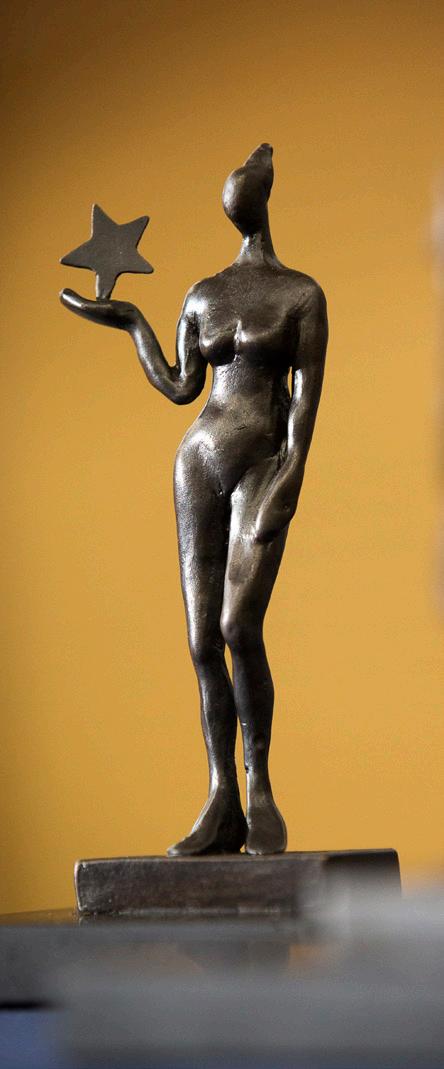
5 minute read
2023
After coming so close in 2021 (when we went into lockdown the day before camps were due to depart Auckland) and being cancelled due to the number of COVID cases in 2022, everyone was excited at the prospect of all seven year levels being able to experience EOTC Week again this year. The students in Years 7-9 had been given a taster with the rescheduled camps in November 2022 but for the senior students this rite of passage and highlight was much anticipated.
However, the EOTC Week lead-up was not without drama! The cyclone and floods caused some nervous moments for Craig Morrison, the newly appointed EOTC Coordinator. He was hampered by water and flooding in the basement of Centennial Building, having to then get wet tents dry before camp (usually this is a post-camp task!) and with some of the Regional Parks remaining closed some activities required a last-minute change. So it was with much relief that we saw students packed and ready to board buses when the first camps left on the Sunday morning.
Our EOTC programme at Diocesan is designed to ensure all students have a range of experiences over their time at Dio that will challenge them physically, mentally and spiritually. It provides opportunities for our students to explore new skills and activities as well as develop strong social connections with peers and develop a stronger sense of community in their cohorts. After considerable time spent in isolation during formative years – without sleepovers and play dates – the importance of this aspect is not to be underestimated. Each year level programme has specific key competencies, values, aims and learning objectives that relate to the girls’ learning in school and reflect their current abilities and understandings about the world around them.
At Year 7 camp at Finlay Park the key focus is ‘Getting to know and having a go’ so students participate in a wide range of fun outdoor sports and activities, developing communication skills and being challenged in inclusive teams so that they also make a lot of new friends.
A real highlight for students this year were the water slides where many students reported that having done the slides, they realised that they are braver than they thought. Having the opportunity to take some risks they also know that new things – even those activities involving mud and dirt – can be fun ways to develop resilience. One student reported in the feedback survey that camp taught her that she can now “switch off my nerves button and get the most out of everything”.
The Year 8 camp week was split between Whangateau (where students camped in tents for two nights) and school-based activities. The challenge is for students to step outside their comfort zone; snorkelling, orienteering, sailing, and the Round the Mountain walk were all opportunities to build confidence, life skills and character while fulfilling some of the William Pike Challenge requirements.
This year, the Year 9 camp was held at the Dilworth rural campus in Mangata¯whiri, formerly Hotel du Vin. Students rotated through a range of activities and between cabins, tents and glamping tents over the week. They were able to experience mountain biking, Waka Ama, kayaking and bushcraft, to name a few of the activities. The biggest challenge for many, however, was the Adrenalin Forest where many students pushed through to conquer a fear of heights on different levels. Students and staff were amazed by how the support of others and encouragement enabled them to go higher and further than they ever thought they could. For many, this sense of achievement was the absolute highlight of the camp. Zahrraa Kamdar in Year 9 wrote: “Tackling the Adrenaline Forest, I went up really high and persevered through the course. I was super proud of myself at the end.”
For Year 10 students the theme is ‘the long road ahead’ and students are guided towards recognising their own potential to make a difference in others’ lives. Although based in Auckland for the week, many identified with the long road ahead quite literally as they did not realise just how long the Coast to Coast walk or the hike to the summit of Rangitoto were actually going to be! This reportedly gave them a greater understanding of the significance of meeting challenges with an open mind and perseverance. During the week at Action Matakana and kayaking to Brown’s Island the students honed important teamwork skills. with Year 13s due to a shortage of guides familiar with Mt Ruapehu. This was a ‘silver lining’ outcome of the current labour shortages as the Year 13s missed their Tongariro camp in 2021. Students in Year 11 canoed on the Whanganui River and also walked a lesser-known track carrying buckets of gravel to rejuvenate the track as part of giving back to the area.
Madison Coleman articulated the challenges the week provided: “I pushed myself with all the activities, especially the crossing, and I ignored the voice in my head that said I couldn’t do it. I also grew an appreciation for talking with my friends a lot more, as I didn’t get to see most of them during activities.”
Thanks to a generous donation, students also developed a better understanding of financial literacy. As Mr Holmes stated by way of introduction to the sessions: “Understanding the basics of the financial world should encourage you to understand the importance of working to earn, your responsibilities and rights as an employee, the power of saving and compound interest, spending money wisely, how to invest and grow your wealth, the necessity of taxation for a community to develop and how being in control of all of that puts you in your own driver’s seat – relying on others to understand your financial position puts you in the passenger seat!”
Year 12s were also school-based and this year students engaged in a wide range of activities. They were able to learn to surf, tried boxing and made flat-pack furniture to donate to women and children coming out of refuge to re-establish their lives. They also learned important skills to keep themselves and others safe by completing a First Aid course, learning self-defence and working through the well-established Loves Me Not programme, designed to teach young women how to keep relationships safe.
A bucket list camp is certainly the Year 11 Camp at Tongariro. The crossing is always a highlight and this year the Year 11s were able to share the experience
Students are often nervous about sharing a room with people they don’t know, but this is such an important way we can ensure they widen their networks and find shared interests with a whole new set of students. Paris Foster in Year 11 wrote in the feedback survey that she was “really happy we got randomised cabin and activity groups as it gave me the opportunity to meet people I wouldn’t normally talk to. I now have a whole group of new friends all because of camp.”
As well as the physical demands of the crossing and white-water rafting, Year 13 spend time reflecting on a solo night at camp. The students can initially find this confronting without friends or phone to occupy their time. It is in itself a challenge, but Tessa Hickin summed up the whole experience when she wrote: “I took away some valuable personal learnings about myself from my reflection time in my solo, but I also took away the confidence that I can push myself physically and mentally to overcome challenges and not shy away.”
The importance of resilience, perseverance, teamwork and having a positive attitude are just some of the significant learnings our students take away from EOTC Week along with the creation of life-long memories and personal satisfaction in conquering many challenges. Many thanks go to Craig Morrison and Holly Ffowcs Williams and also the year level deans for their organisation and execution of such a successful week.



















